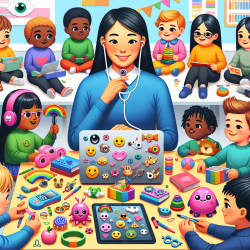As educators and practitioners working with young children, understanding the dynamics of parenting styles can significantly impact how we approach behavioral challenges in the classroom. Recent research titled "Parenting Styles, Family Characteristics, and Teacher-Reported Behavioral Outcomes in Kindergarten" sheds light on how different parenting styles influence children's behavior as reported by teachers. This knowledge not only helps in creating effective interventions but also encourages further exploration into the intricate relationships between home environments and school settings.
The Role of Parenting Styles
The study categorizes parenting styles into four types: authoritarian, authoritative, permissive, and uninvolved. Each style has distinct characteristics that shape children's behavior differently:
- Authoritarian: Characterized by strict rules and high expectations, often resulting in children who may struggle with independence and exhibit more behavioral issues.
- Authoritative: Combines warmth with structure, leading to positive outcomes such as emotional regulation and social skills.
- Permissive: Involves leniency and a lack of boundaries, which can lead to issues with self-regulation in children.
- Uninvolved: Marked by a lack of responsiveness and demands, often resulting in higher levels of problem behaviors.
The research highlights that authoritative parenting is associated with the best behavioral outcomes in children. It underscores the importance of balance between nurturing support and clear boundaries.
The Impact of Parenting Stress
The study also explores how parenting stress moderates the relationship between parenting styles and child behavior problems. Higher levels of stress were linked to more teacher-reported behavioral issues, particularly among uninvolved parents. This finding emphasizes the need for support systems that help parents manage stress effectively to foster better developmental outcomes for their children.
Implications for Practitioners
This research offers valuable insights for educators and therapists working with young children:
- Create Supportive Environments: Understanding the home dynamics can help tailor interventions that support both children and their families.
- Cultivate Parental Engagement: Encouraging authoritative practices through workshops or counseling can promote better behavioral outcomes.
- Acknowledge Stress Factors: Addressing parental stress through community resources or school-based programs can mitigate its impact on children's behavior.
The study's findings are a call to action for practitioners to delve deeper into family dynamics and consider them when addressing classroom behavioral challenges. By fostering a collaborative approach between parents and educators, we can create environments that nurture positive growth and learning experiences for children.










